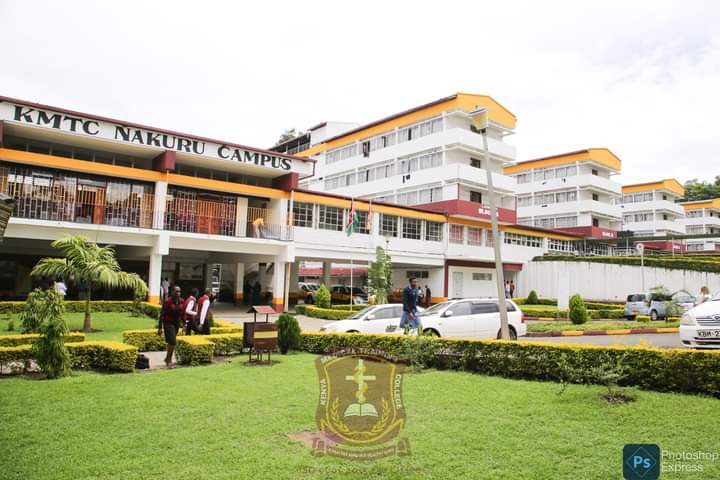The Kenya Medical Training College (KMTC) offers an esteemed Diploma in Pharmacy, a course designed for individuals aiming to pursue a rewarding career in the pharmaceutical industry. This three-year program equips students with the necessary skills, knowledge, and practical experience to become proficient pharmacy professionals. As Kenya continues to develop its healthcare infrastructure, the demand for qualified pharmacists and pharmacy technologists is on the rise, making this program an attractive option for students interested in healthcare.
In this article, we will provide an in-depth look at the KMTC Diploma in Pharmacy course, including its entry requirements, structure, duration, fees, and potential career paths. We will also discuss the Higher Diploma in Pharmacy, which is a specialized qualification for those who wish to advance their careers in clinical and herbal medicine fields.
Why Opt for KMTC’s Diploma in Pharmacy?
KMTC stands as one of Kenya’s leading medical training institutions, offering recognized, high-quality education in a variety of healthcare fields. The Diploma in Pharmacy program at KMTC is not only approved by the Pharmacy and Poisons Board (PPB) but also meets the rigorous standards set by the Ministry of Health. This makes KMTC an ideal choice for students aspiring to pursue pharmacy as a profession, as the training received here is globally recognized.
The Diploma in Pharmacy program at KMTC is specifically designed to produce skilled pharmacy technologists capable of assisting licensed pharmacists in delivering pharmaceutical care to patients. Graduates of the program are expected to work in various pharmaceutical settings, ranging from retail pharmacies and hospitals to pharmaceutical manufacturing companies.
What to Expect from the KMTC Diploma in Pharmacy
The Diploma in Pharmacy is a three-year course that offers a comprehensive education in pharmaceutical sciences, drug management, and patient care. The course consists of both classroom instruction and hands-on training, with students completing clinical attachments in hospitals and pharmacies. This combination of theory and practice ensures that students gain valuable real-world experience before they graduate.
Course Structure:
- First Year: Foundation of Pharmaceutical Sciences In the first year, students focus on building their foundational knowledge of pharmaceutical sciences. This year covers essential subjects such as pharmacology, chemistry, pharmaceutical ethics, and human anatomy. Students are also introduced to topics such as pharmacokinetics (how drugs are absorbed, distributed, metabolized, and excreted) and pharmaceutical law.
- Second Year: Advanced Pharmaceutical Training and Clinical Practice The second year emphasizes practical learning, with students getting the opportunity to apply their knowledge in clinical environments. Key topics include drug formulations, pharmaceutical care, medication therapy management, and patient counseling. Students begin working in real-world settings, such as hospitals and community pharmacies, under the supervision of licensed pharmacists.
- Third Year: Specialization and Clinical Internships The third and final year focuses on more specialized aspects of pharmaceutical practice, including areas like clinical pharmacy, drug dispensing, and healthcare communication. Students also participate in internships and practical attachments in various healthcare settings, allowing them to refine their skills and prepare for the workforce.
Entry Requirements for the KMTC Diploma in Pharmacy
To be eligible for admission to the KMTC Diploma in Pharmacy, applicants must meet the following academic qualifications:
- KCSE Mean Grade: Minimum of C Plain.
- Subjects:
- C in English or Kiswahili.
- C in Chemistry or Physical Science.
- C in Biology or Biological Sciences.
- C in any one of the following: Physics or Mathematics.
These requirements ensure that students have a strong foundation in the sciences, which is critical for understanding the concepts and skills taught in the program. Students from other education systems with equivalent qualifications are also encouraged to apply, provided they meet the requirements as stipulated by Kenya National Examinations Council (KNEC).
It is important to note that KMTC may also have additional requirements, such as medical certification or proof of English proficiency for international applicants.
KMTC Higher Diploma in Pharmacy
For graduates who wish to specialize further, KMTC offers the Higher Diploma in Pharmacy, a 1 ½ year advanced program that deepens knowledge in clinical pharmacy and herbal medicine. The Higher Diploma is ideal for students who have already obtained a Diploma in Pharmacy and want to pursue a career in specialized areas of pharmaceutical practice.
Higher Diploma in Pharmacy Details:
- Duration: 1 ½ years.
- Location: The program is available in Nairobi.
- Eligibility:
- Must hold a Diploma in Pharmacy from a recognized institution.
- Must be enrolled with the Pharmacy and Poisons Board (PPB).
The Higher Diploma in Pharmacy program equips graduates with the expertise to work in advanced roles, such as in clinical research, hospital pharmacies, and pharmaceutical consulting. It is also an excellent opportunity for those interested in pursuing a career in herbal medicine, a growing sector in the healthcare industry.
Fees and Financial Information
The fees for the KMTC Diploma in Pharmacy program vary depending on the specific campus chosen by the student. The program covers tuition, examination fees, practical training costs, and other mandatory charges.
Applicants are encouraged to refer to the KMTC website or contact the institution directly for the most up-to-date fee structure. It is important to note that KMTC may offer scholarships or financial aid for eligible students, and prospective students should inquire about these opportunities when applying.
How to Apply for the KMTC Diploma in Pharmacy
Applying for the KMTC Diploma in Pharmacy involves a simple and clear process. Here are the steps to follow:
- Download the Application Form:
Visit the official KMTC website to download the application form. The form will contain detailed instructions on how to apply. - Complete the Application Form:
Provide your personal details, academic qualifications, and other required information as requested on the form. - Submit Your Application:
After completing the form, submit it either online or in person to the relevant campus. - Attend Interviews/Selection Process:
Applicants who meet the eligibility requirements may be called for an interview or other selection procedures. Successful candidates will receive an offer of admission. - Provide Supporting Documents:
Along with the application form, you will need to submit certified copies of your KCSE results, identification documents, and any other requested certificates. - Final Confirmation:
Once selected, students will receive final confirmation from the KMTC admissions office. They can then proceed with fee payments and other preparatory steps for enrollment.
Career Opportunities After the KMTC Diploma in Pharmacy
Upon completion of the KMTC Diploma in Pharmacy, graduates have numerous career opportunities available to them in a variety of pharmaceutical settings. Some of the most common career paths include:
- Pharmacy Technologist: Graduates can work in public and private pharmacies, hospitals, and clinics, assisting pharmacists with drug dispensing, patient education, and inventory management.
- Hospital Pharmacy: Graduates may work in hospital pharmacies, contributing to medication therapy management, drug therapy optimization, and providing support to healthcare teams.
- Pharmaceutical Sales and Marketing: Working as sales representatives for pharmaceutical companies, promoting drugs, and building relationships with healthcare professionals.
- Clinical Pharmacy: Specializing in clinical settings, where pharmacists work alongside doctors to ensure the safe use of medications in treating patients.
- Research and Development: In the pharmaceutical industry, graduates can contribute to drug research, development, and clinical trials.
- Public Health Pharmacy: Working in government health programs and initiatives to improve access to essential medications and promote drug safety and awareness.
Why Choose KMTC for Your Pharmacy Studies?
- Accredited by the Pharmacy and Poisons Board (PPB): KMTC’s Diploma in Pharmacy program is recognized by the relevant regulatory bodies, ensuring that graduates are eligible for professional practice in Kenya and beyond.
- Practical Training Opportunities: The program offers significant hands-on experience, which is crucial in preparing students for the real-world demands of the pharmacy profession.
- High-Quality Faculty: KMTC employs experienced instructors who bring both academic expertise and industry experience to the classroom.
- Strong Industry Connections: KMTC has partnerships with hospitals, clinics, and pharmaceutical companies, providing students with valuable internship and job placement opportunities.
The KMTC Diploma in Pharmacy is an excellent choice for individuals looking to build a career in the rapidly growing pharmaceutical industry. With a robust curriculum, practical training, and strong career prospects, this program provides students with the necessary tools to succeed in the field of pharmacy. Whether you want to work in hospitals, community pharmacies, or pharmaceutical research, the KMTC Diploma in Pharmacy opens up a wide range of opportunities.
For those interested in further specialization, the Higher Diploma in Pharmacy offers an opportunity to deepen knowledge in areas such as clinical pharmacy and herbal medicine.





